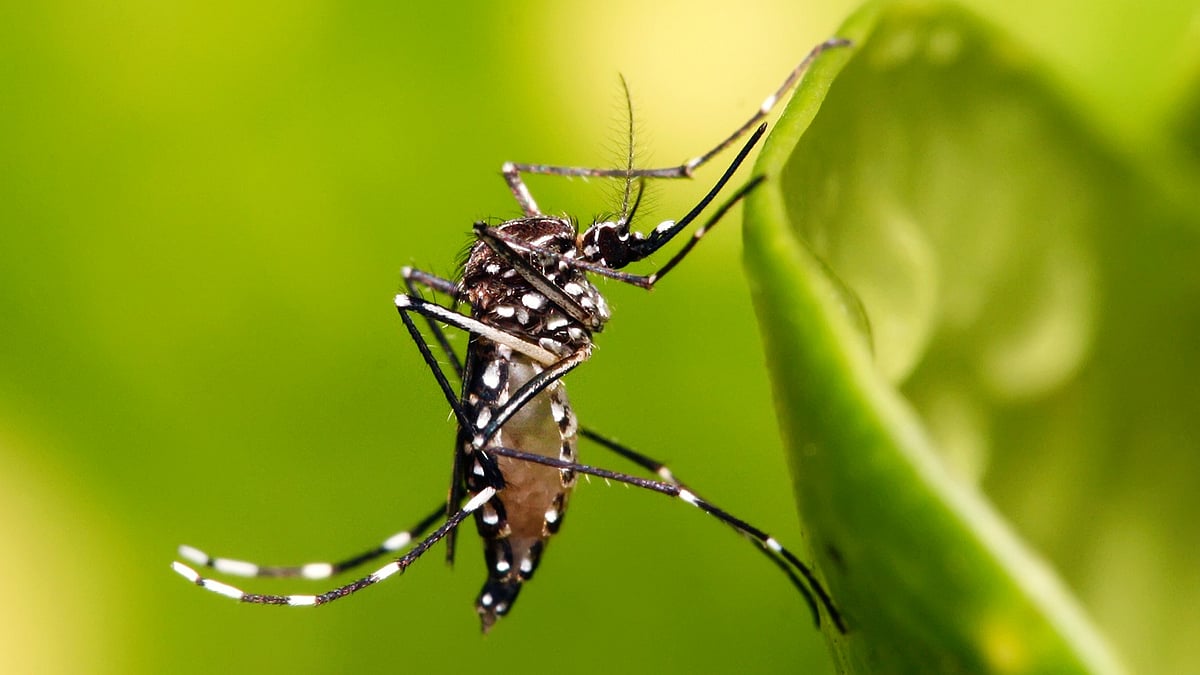Environment
Global warming: Iceland records its first mosquito sighting ever
Earlier this year, Iceland recorded unusually high temperatures, with 2025 described by some as one of its warmest years

Iceland — long regarded as one of the few places on Earth free from mosquitoes — has now reported the presence of the bloodsucking insects within its territory. Scientists at the Natural Science Institute of Iceland confirmed this week that three mosquitoes had been sighted recently.
The institute shared photographs showing a male and two female mosquitoes discovered near a garden rope soaked in red wine, which had been set out to attract butterflies in Kjós municipality, north of Reykjavík.
While many around the world are accustomed to mosquitoes buzzing around their homes, the discovery in Iceland suggests that one of the last remaining refuges from the insects may no longer be free of them.
Experts believe the sightings could be linked to global warming. “The recent mosquito sightings in Iceland are likely linked to the effects of climate change,” Carla Vieira, a scientist specialising in mosquito-borne viruses at the QIMR Berghofer Medical Research Institute in Australia, said in an email.
“Rising global temperatures and milder winters are creating more favorable conditions for mosquitoes to survive and reproduce in regions that were previously too cold for them,” Vieira added.
Earlier this year, Iceland recorded unusually high temperatures, with 2025 being described by some as one of the warmest years in its history.
Though it remains uncertain how the mosquitoes arrived on the island, experts suggest that cargo shipping, trade, and increased travel could have been among the reasons. Scientists from the Natural Science Institute captured and analysed the insects, identifying them as Culiseta annulata — a common European mosquito species known for its ability to adapt to colder environments.
Published: undefined
Unprecedented but unsustainable
Some entomologists remain doubtful about whether the insects can establish themselves in Iceland’s harsh climate.
“Even for a cold-adapted species, the harsh conditions of Iceland would make it more challenging for it to survive and establish itself locally,” Philip Weinstein, professor of public health at the University of Adelaide, said in an email. However, the mosquitoes could establish a population in the area “if lucky”, he said.
Weinstein noted that the mosquitoes are “extremely unlikely to act as a disease transmitter”, explaining that infection would require “infected animals for the mosquitoes to bite, followed by a considerable warm period for the virus to develop in the mosquito”.
The discovery has prompted excitement and curiosity among citizen scientists in Iceland, with residents sharing their own potential mosquito sightings on social media.
Vieira agreed that the insects are “unlikely to persist” on the island, noting that mosquitoes require consistently warm temperatures and standing water to breed.
“However, as the climate continues to warm, the seasonal window suitable for mosquito survival may gradually expand, increasing the likelihood of future sightings or even temporary populations during warmer months,” she said.
With agency inputs
Published: undefined
Follow us on: Facebook, Twitter, Google News, Instagram
Join our official telegram channel (@nationalherald) and stay updated with the latest headlines
Published: undefined